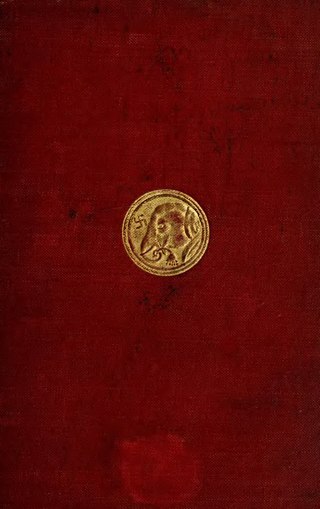
Joseph Rudyard Kipling was an English novelist, short-story writer, poet, and journalist. He was born in British India, which inspired much of his work.
This is a bibliography of works by Rudyard Kipling, including books, short stories, poems, and collections of his works.

The Macdonald sisters were four English women of part-Scottish descent born during the 19th century, notable for their marriages to well-known men. Alice, Georgiana, Agnes and Louisa were the daughters of Reverend George Browne Macdonald (1805–1868), a Wesleyan Methodist minister, and Hannah Jones (1809–1875).

"Mandalay" is a poem by Rudyard Kipling, written and published in 1890, and first collected in Barrack-Room Ballads, and Other Verses in 1892. The poem is set in colonial Burma, then part of British India. The protagonist is a Cockney working-class soldier, back in grey restrictive London, recalling the time he felt free and had a Burmese girlfriend, now unattainably far away.
My Boy Jack is a 1997 play by English actor David Haig. It tells the story of Rudyard Kipling and his grief for his son, John, who died in the First World War.
"My Boy Jack" is a 1916 poem by Rudyard Kipling. Kipling wrote it for Jack Cornwell, the 16 year old youngest recipient of the Victoria Cross who stayed by his post on board the light cruiser HMS Chester at the Battle of Jutland until he died. Kipling's son John was never referred to as "Jack". The poem echoes the grief of all parents who lost sons in the First World War. John Kipling was a 2nd Lt in the Irish Guards and disappeared in September 1915 during the Battle of Loos in the First World War. The poem was published as a prelude to a story in his book Sea Warfare written about the Battle of Jutland in 1916. The imagery and theme is maritime in nature and as such it is about a generic nautical Jack, though emotionally affected by the death of Kipling's son.
"Submarines" is a poem written by Rudyard Kipling (1865-1936), and set to music by the English composer Edward Elgar in 1917, as the third of a set of four war-related songs on nautical subjects for which he chose the title "The Fringes of the Fleet".

The Fringes of the Fleet is a booklet written in 1915 by Rudyard Kipling (1865–1936). The booklet contains essays and poems about nautical subjects in World War I.

"The Gods of the Copybook Headings" is a poem by Rudyard Kipling, characterized by biographer Sir David Gilmour as one of several "ferocious post-war eruptions" of Kipling's souring sentiment concerning the state of Anglo-European society. It was first published in the Sunday Pictorial of London on 26 October 1919; in America, it was published as "The Gods of the Copybook Maxims" in Harper's Magazine in January 1920.
The Definitive Edition of the verse of Rudyard Kipling (1865–1936) was published in 1940 in London by Hodder and Stoughton, Ltd and in Edinburgh by R. R. Clark. It is a one-volume collection and was printed on India paper.

Alice Caroline Kipling was one of the MacDonald sisters, Englishwomen of the Victorian era, four of whom were notable for their contribution to the arts and their marriages to well-known men. A writer and poet, she was the mother of the author Rudyard Kipling, aunt of British Prime Minister Stanley Baldwin, and sister-in-law of Edward Poynter and Edward Burne-Jones.
"Big Steamers" is a poem by Rudyard Kipling, first published in 1911 as one of his twenty-three poems written specially for C. R. L. Fletcher's "A School History of England". It appears in the last chapter of the book. It is intended for children, with the verses responding with facts and humour to their curiosity about the 'big steamers' - as the merchant ships are called.

John Kipling was the only son of British author Rudyard Kipling. In the First World War, his father used his influence to get him a commission in the British Army despite being decisively rejected for poor eyesight. His death at the Battle of Loos caused his family immense grief.
"Boots" is a poem by English author and poet Rudyard Kipling (1865–1936). It was first published in 1903, in his collection The Five Nations.
A Choice of Kipling's Verse, made by T. S. Eliot, with an essay on Rudyard Kipling is a book first published in December 1941. It is in two parts. The first part is an essay by American-born British poet T. S. Eliot (1888–1965), in which he discusses the nature and stature of British poet Rudyard Kipling (1865–1936). The second part consists of Eliot's selection from Kipling's poems.
"Dane-geld" is a poem by British writer Rudyard Kipling (1865-1936). It relates to the unwisdom of paying "Danegeld", or what is nowadays called blackmail and protection money. The most famous lines are "once you have paid him the Danegeld/ You never get rid of the Dane."

"The Beginnings" is a 1917 poem by the English writer Rudyard Kipling. The poem is about how the English people, although naturally peaceful, slowly become filled with a hate which will lead to the advent of a new epoch.
"McAndrew's Hymn" is a poem by English writer Rudyard Kipling (1865–1936). It was begun in 1893, and first published in December 1894 in Scribner's Magazine. It was collected in Kipling's The Seven Seas of 1896. Some editions title the poem "M'Andrew's Hymn".
"The Mary Gloster" is a poem by British writer Rudyard Kipling (1865-1936). It is dated 1894, but seems to have been first published in his 1896 collection The Seven Seas.
"For All We Have And Are" is a 1914 poem by Rudyard Kipling in response to German war crimes during the First World War.








